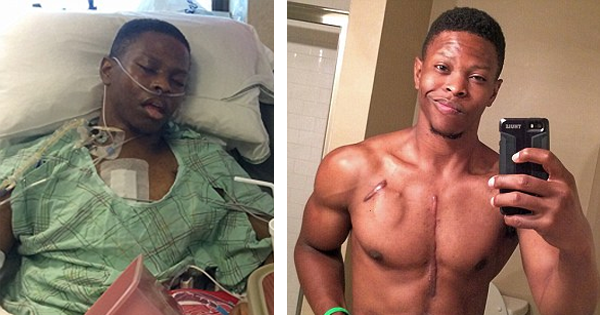Advertisement
In 2012, when passionate bodybuilder Andrew Jones first began to become short of breath every time he ran, he chose to ignore the problem and just forge through it. Jones decided to push through it for two years, which is when the problem finally got worse.
After two years, Jones began to cough up blood and develop high fevers on top of experiencing shortness of breath, which is what ultimately prompted him to get his problem checked out.
At the hospital, Jones’ doctors diagnosed him with cardiomyopathy, a condition where the heart muscles are abnormal, making it difficult for the heart to pump blood through the rest of the body.
The condition persisted and worsened until Jones could barely dress himself, walk, or even stand without support.
A few months later, the doctors warned Jones that if he didn’t get a transplant, he would die.
However, at the time Jones needed the transplant most, there were no organs available for donation.
Knowing that Jones had little time to spare, the doctors decided to fit him with a pacemaker and artificial heart. Two tubes connect from the inside of Jones’ body to a machine that he carries with him in a bag outside his body.

Inside the bag is a machine that pumps air through Jones’ ventricles, allowing blood to travel through the body without any problem.
Now, another two years after this procedure, Jones is back at the gym, pressing iron more enthusiastically than ever. Although he now has to ensure his weight-lifting routine caters to his new medical situation, Jones “feel[s] like a new person.”
He says, “I am almost back to the old Andrew that was able to train with passion and intensity. I do everything I can without compromising my health and the security of my devices.”
Since having this procedure done, Jones has even launched his own charity organization called Hearts at Large that raises awareness for and promotes organ donation. Jones hopes that his charity can help “advance our already advanced technology to save lives.”
Personally, Jones is proud of his progress in overcoming this challenge and doesn’t shy away from explaining his medical situation to others.
“I do try to be considerate because it is different and some people may feel uncomfortable,” Jones explains, “But I have no problem explaining what my device is, how it works, and why I need it.”




